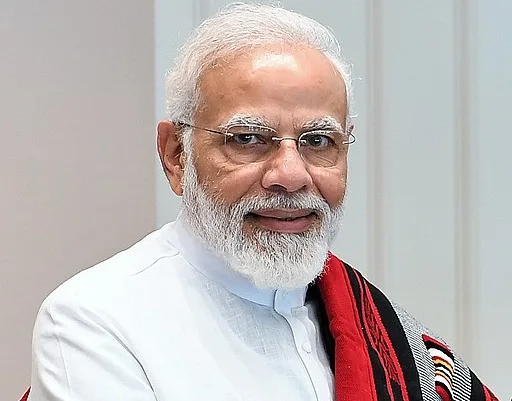India’s Prime Minister Narendra Modi joins the G7 outreach session in Apulia, Italy, focusing on key global issues including AI, energy, and geopolitical conflicts
Prime Minister Narendra Modi arrived in Italy late Thursday night to attend the 50th G7 Summit, taking place from June 13 to 15 in the scenic resort town of Fasano in the Apulia region. This marks Modi’s first international trip after securing his third consecutive term as Prime Minister following the Bharatiya Janata Party-led NDA’s victory in the 2024 Lok Sabha elections.
Modi was invited to the G7 outreach session by Italian Prime Minister Giorgia Meloni. The summit’s agenda is heavily influenced by ongoing global conflicts such as the Russia-Ukraine war and the Israel-Hamas war. Leaders from Algeria, Argentina, Brazil, Egypt, Kenya, Mauritania, Saudi Arabia, South Africa, Tunisia, and Turkey are also attending the session.
On Friday, Modi is set for a busy day at the summit. He will participate in a session titled ‘Artificial Intelligence, Energy, Africa-Mediterranean,’ hosted by PM Meloni and featuring Pope Francis. Modi aims to bridge the outcomes of the recent G20 Summit under India’s presidency with the G7 discussions, focusing on issues critical to the Global South.
Additionally, Modi will engage in bilateral talks with several world leaders, including US President Joe Biden, UK Prime Minister Rishi Sunak, French President Emmanuel Macron, Japanese Prime Minister Fumio Kishida, and German Chancellor Olaf Scholz. Although there are no plans for a formal meeting with Canadian Prime Minister Justin Trudeau, Modi might have brief interactions with him. There is also speculation about a possible interaction with Ukrainian President Volodymyr Zelensky, but this remains unconfirmed.
In a departure statement, Modi expressed enthusiasm about his visit, noting, “I look forward to meeting fellow world leaders and discussing a wide range of issues aimed at making our planet better and improving lives of people.” He also reminisced about his previous visit to Italy for the G20 Summit in 2021 and highlighted the deepening strategic partnership between India and Italy, particularly in the Indo-Pacific and Mediterranean regions.
Modi will not be attending the Ukraine Peace Summit in Switzerland, scheduled from June 15 to 16, as per Foreign Secretary Vinay Kwatra. India will be represented at an appropriate level, though the specific representative has yet to be announced.
Analysis:
Political: PM Modi’s participation in the G7 Summit underscores India’s rising global influence and its strategic partnerships with major world powers. By engaging with leaders from the G7 and other invited countries, Modi aims to reinforce India’s stance on global issues such as AI, energy security, and geopolitical conflicts. His bilateral meetings with leaders like Biden, Sunak, and Macron highlight India’s pivotal role in international diplomacy and economic cooperation.
Social: Modi’s agenda at the G7 Summit reflects significant social implications, particularly regarding technological advancements and energy sustainability. The discussions on artificial intelligence and renewable energy sources are critical as these areas impact global employment, social equity, and environmental sustainability. Modi’s emphasis on outcomes benefiting the Global South also addresses social justice by advocating for equitable resource distribution and technological access.
Racial: Modi’s outreach at the G7 includes engaging with leaders from diverse racial backgrounds and regions, promoting a global dialogue that transcends racial and regional boundaries. This inclusive approach supports the idea that major global challenges require cooperation across different cultures and ethnicities, fostering a more unified international community.
Gender: While the summit’s primary agenda might not directly address gender issues, the participation of leaders from various backgrounds, including female leaders like PM Meloni, indirectly supports gender diversity in global leadership. Modi’s discussions on technological and economic development also implicitly address gender equity, as advancements in these fields can contribute to reducing gender disparities worldwide.
Economical: Economically, Modi’s presence at the G7 Summit is significant for fostering international trade and investment opportunities. His bilateral meetings aim to strengthen economic ties and collaborations in sectors such as technology, energy, and defence. The discussions on AI and renewable energy are particularly relevant for economic growth, as these sectors represent the future of the global industry and have the potential to create millions of jobs, drive innovation, and support sustainable development.
